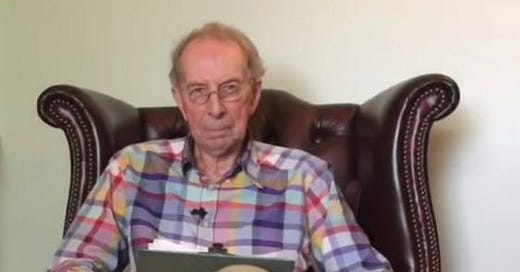I learned more about being a GP while sitting in a bar than I learned at medical school
March 10, 2025 by Doctor Vernon Coleman
When I first started work as a GP I was rather substantially under trained. My only previous medical experience had been in hospital where the patients had been lined up in neat rows, wearing nightwear. Moreover, they had diagnoses written on the charts at the bottom of their beds.
General practice, I discovered, was rather different.
Patients came into the surgery fully dressed and mostly with no idea what might be wrong with them.
On my first evening as a GP, one of the senior partners took me for a drink in the bar of a local hotel. Apart from introducing me to the joys of malt whisky (on which subject he was an expert) he taught me four things.
First, when a mother says her baby is ill then there is something wrong with the baby. This is an unarguable fact. Mothers are always right.
Second, a good GP should visit all their really sick patients regularly, whether they have requested a home visit or not. And visit all the really elderly patients every couple of weeks – whether they are at home or in a nursing home or old people’s home. (They weren’t called `care homes’ then.) Occasionally, I even visited patients of mine who had been admitted to hospital.
Third, see anyone who rings up and wants to be seen – whatever the time of day or night. And see them then. And if you give advice on the telephone, always ask if the patient still wants you to visit them.
Fourth, common things happen commonly but just because a disease is rare doesn’t mean it doesn’t happen.
Those were the framework for my life in general practice.
Oh, and there was an added extra.
`You will go into homes where the television is still switched on with the volume turned up high,’ he told me. `This makes it impossible to listen to a chest or talk to a patient. If the person watching the TV ignores a polite request to turn the TV down or off then walk firmly to the offending set and mess with all the knobs. The TV addict will rush over and turn off the set immediately.’
This worked well because in those days TV sets were fitted with controls for colour and contrast and most people had spent hours setting up their set. I discovered that I only had to do this once. The next time I visited that house the TV addict would rush over to the set and turn it off before I got a yard into the hallway.
Those were my early lessons in general practice.
The GP who taught me those things died not long ago. I miss him greatly. After he had retired we used to watch cricket together. The GP to whom he went when he was first taken ill misdiagnosed him. And the consultant who treated him screwed up. My friend and mentor was another victim of iatrogenesis.
NOTE
Vernon Coleman’s novel called `The awakening of Dr Amelia Leighton’ is the story of a young doctor working as a family doctor in a modern, coldly clinical practice in London. The practice is rule bound and bureaucratic. After she breaks the rules by visiting a patient at home Amelia is given an official warning. She leaves her modern practice and takes a job in a small, old-fashioned country practice where there is no mobile phone coverage and no appointments system. `The awakening of Dr Amelia Leighton’ describes how a young doctor comes face to face with the past – a very different way of practising medicine. To purchase a copy of `The Awakening of Dr Amelia Leighton’ CLICK HERE
Copyright Vernon Coleman March 2025





Memories of doctors in private practice, those who cared, committed to the oath they took, the people they treated, and their reputations that would live on in the people’s lives they touched.
Today? They do as they are told by their corporate masters or get cancelled.
There’s a reason why “National Healthcare” is a Marxist plank.
Great article from the good doctor. What the heck ever happened to the type of practice Vernon is talking about? Sadly missed. I think it's about 60 years since doctors did house calls. Even if the doctor wasn't the best, at least he gave the appearance of actually caring about you. At any rate, since Obamacare(not), one is lucky to get more than 5 minutes with their doctor in his office. Some things about the good old days were actually good.